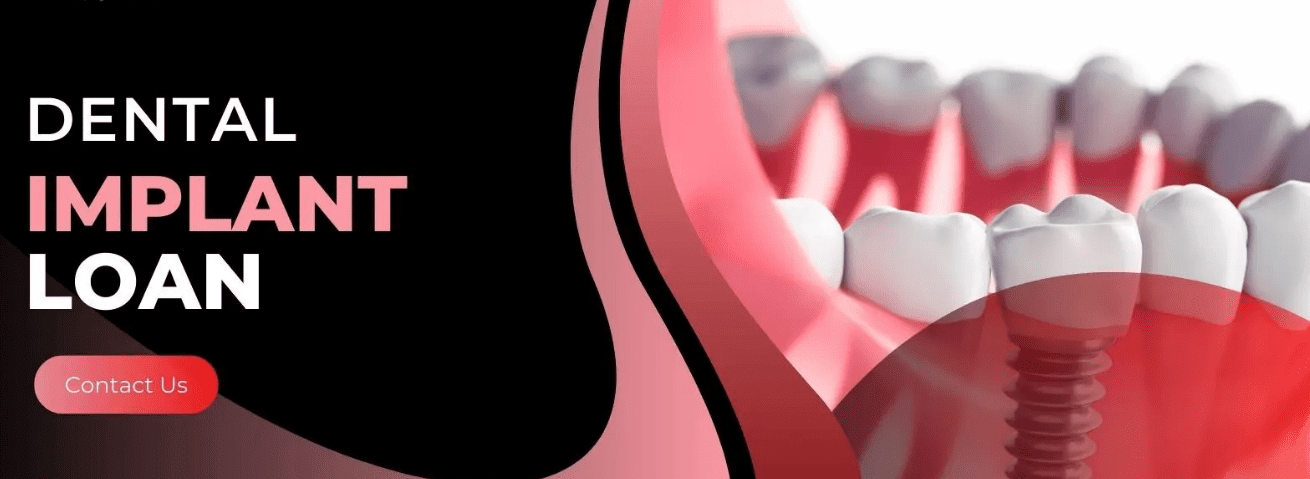Dental Implant Loans
Welcome to the world of dental implant loans, where financing your perfect smile has never been easier. Whether you are missing a tooth or looking to improve your self-confidence, dental implants offer a long-term solution for a beautiful and healthy smile. With the help of dental implant loans, you can achieve the smile of your dreams without breaking the bank. Say goodbye to gaps in your teeth and hello to a brighter, more confident you.
Understanding the Cost of Dental Implants
When considering getting dental implants, it is important to understand the cost associated with this procedure. Dental implants are a long-term investment in your oral health and overall well-being, but they can also come with a significant price tag. The cost of dental implants can vary depending on several factors, including the number of implants needed, the type of implant used, the location of the dental practice, and any additional procedures required.
The average cost of a single dental implant can range from $1,000 to $3,000, with the total cost of a full mouth restoration ranging from $24,000 to $100,000. This may seem daunting, but it’s important to remember that dental implants are a permanent solution for missing teeth and can improve your quality of life in the long run. Additionally, many dental practices offer financing options, such as dental implant loans, to help make the cost more manageable.
When determining the cost of dental implants, it’s crucial to consider not only the initial cost of the procedure but also the long-term benefits. Dental implants are designed to be durable and long-lasting, often lasting a lifetime with proper care. Unlike other tooth replacement options, such as dentures or bridges, dental implants do not need to be replaced every few years, saving you money in the long run.
While the upfront cost of dental implants may be higher than other tooth replacement options, it’s important to consider the overall value they provide. Dental implants are the closest alternative to natural teeth and can help preserve the structure of your jawbone, preventing bone loss and maintaining your facial features. This can have a significant impact on your confidence and self-esteem, in addition to improving your ability to eat, speak, and smile comfortably.
When considering the cost of dental implants, it’s essential to consult with a qualified dentist or oral surgeon to discuss your options and develop a treatment plan that fits your budget. Many dental practices offer complimentary consultations to assess your oral health and provide a personalized treatment plan, including a breakdown of the costs involved. Additionally, your dentist may be able to work with you to explore financing options, such as dental implant loans, to help make the cost of treatment more manageable.
While the cost of dental implants may be a consideration, it’s important not to let finances deter you from pursuing this life-changing treatment. With advances in dental technology and the availability of financing options, dental implants are more accessible than ever before. Investing in your oral health and overall well-being through dental implants can provide you with a beautiful, functional smile that can last a lifetime.
Benefits of Dental Implant Financing
When it comes to paying for dental implants, the cost can be a major barrier for many patients. However, with the option of dental implant loans, patients are provided with a way to finance their required dental procedures. There are several benefits to choosing dental implant financing:
1. Flexible Payment Options: Dental implant loans offer patients the flexibility to choose a payment plan that works for their budget. Instead of having to pay the entire cost of the procedure upfront, patients can spread the cost over time, making it more manageable for them. This can relieve financial strain and allow patients to focus on their oral health without worrying about immediate payment.
2. Access to Quality Care: By opting for dental implant financing, patients can access the quality care they need without having to compromise on the level of treatment they receive. Dental implants are a long-term solution for missing teeth, and choosing financing options allows patients to invest in their oral health and overall well-being.
3. Improved Confidence and Quality of Life: Dental implants are not just a cosmetic solution; they also provide functional benefits that can improve a patient’s quality of life. With dental implant financing, patients can restore their smile, boost their confidence, and enjoy the ability to eat, speak, and laugh without worry. This can have a positive impact on their overall self-esteem and well-being.
4. Minimal Interest Rates: Many dental implant loans come with minimal interest rates, making them a cost-effective option for patients in need of dental treatment. With competitive rates and manageable payment plans, patients can afford to invest in their oral health without breaking the bank.
5. Convenient Application Process: Applying for dental implant financing is a straightforward process that can be completed online or in-person at the dental office. Patients can easily fill out an application, provide the necessary documentation, and receive approval in a timely manner. This streamlined process makes it easy for patients to get the financial assistance they need for their dental implants.
Overall, dental implant financing offers patients a convenient and affordable way to access the quality care they need. By choosing financing options, patients can restore their smile, improve their oral health, and enhance their overall well-being without the stress of immediate payment. With flexible payment plans, minimal interest rates, and easy application processes, dental implant loans are a valuable solution for patients seeking to invest in their oral health.
Comparing Different Loan Options for Dental Implants
When it comes to getting dental implants, the cost can be a major barrier for many people. However, there are several loan options available that can help make this investment in your oral health more manageable. Here, we will compare the different loan options for dental implants to help you make an informed decision.
1. Personal Loans: A personal loan is a popular option for financing dental implants because it is unsecured, meaning you don’t need to put up any collateral. These loans typically have fixed interest rates and repayment terms, making it easier to budget for the monthly payments. However, personal loans may have higher interest rates compared to other loan options, so it’s essential to compare offers from different lenders to find the best deal.
2. Dental Financing: Some dental offices offer financing options specifically designed for dental procedures, including implants. These plans may have low or no interest rates for a certain period, making them an attractive option for those who need immediate dental work but cannot afford to pay the full cost upfront. Additionally, dental financing plans may have more lenient credit requirements compared to traditional loans, making them accessible to a broader range of patients.
3. Credit Cards: Using a credit card to finance dental implants can be a convenient option for some patients. Many credit cards offer promotional 0% APR periods, allowing you to pay for your implants without accruing interest for a set period. However, once the promotional period ends, the interest rates on credit cards can be relatively high, making this option more costly in the long run. Additionally, maxing out a credit card can negatively impact your credit score, so it’s essential to consider the potential consequences before choosing this option.
4. Health Savings Account (HSA) or Flexible Spending Account (FSA): If you have an HSA or FSA, you may be able to use these accounts to pay for dental implants. These accounts allow you to set aside pre-tax dollars for medical expenses, including dental treatments. Using an HSA or FSA to finance dental implants can help you save money on taxes while covering the cost of your treatment. However, it’s essential to check with your account provider to ensure that dental implants are an eligible expense under your plan.
5. In-House Financing: Some dental offices may offer in-house financing options for patients who cannot afford to pay for their treatment upfront. These plans may have flexible repayment terms and interest rates, making them a convenient option for those who do not qualify for traditional loans. However, it’s crucial to read the terms and conditions carefully to understand the full cost of financing your implants through the dental office.
Overall, when comparing different loan options for dental implants, it’s essential to consider factors such as interest rates, repayment terms, credit requirements, and potential impact on your credit score. By researching and comparing loan options, you can find the best financing solution that fits your budget and helps you achieve a healthy smile.
How to Qualify for Dental Implant Loans
Obtaining a dental implant loan can be a great option for those in need of dental work but lacking the funds to pay for it upfront. Here are some tips on how to qualify for dental implant loans:
1. Good Credit Score: One of the most important factors that lenders look at when considering a loan application is your credit score. A good credit score shows that you are a responsible borrower and are likely to repay the loan on time. If you have a high credit score, you are more likely to qualify for a dental implant loan with favorable terms and interest rates.
2. Stable Income: Lenders want to ensure that you have a stable source of income to make monthly loan payments. Having a steady job with a consistent income will increase your chances of qualifying for a dental implant loan. Make sure to provide proof of income, such as pay stubs or tax returns, when applying for the loan.
3. Low Debt-to-Income Ratio: Lenders also look at your debt-to-income ratio, which is the amount of debt you have relative to your income. A lower debt-to-income ratio shows that you have manageable levels of debt and are able to take on additional debt, such as a dental implant loan. To improve your debt-to-income ratio, try paying off any outstanding debts before applying for the loan.
4. Collateral: Some lenders may require collateral to secure the dental implant loan. Collateral can be an asset, such as a car or property, that the lender can claim if you fail to repay the loan. By offering collateral, you reduce the risk for the lender, making it easier for you to qualify for the loan. However, not all lenders require collateral for dental implant loans, so be sure to ask about this requirement before applying.
5. Co-Signer: If you have a poor credit score or unstable income, you may still be able to qualify for a dental implant loan by having a co-signer. A co-signer is someone who agrees to take on the responsibility of repaying the loan if you are unable to do so. Having a co-signer with a good credit score and stable income can help you secure a dental implant loan with better terms and interest rates.
Overall, qualifying for a dental implant loan requires a combination of good credit, stable income, and manageable debt levels. By meeting these criteria, you can increase your chances of obtaining the financing you need to improve your dental health. Be sure to shop around and compare offers from different lenders to find the best loan option for your situation.
Tips for Managing Payments on Dental Implant Financing
When it comes to financing dental implants, it is important to carefully manage your payments to ensure that you can afford the treatment without causing financial strain. Here are some tips to help you effectively manage your payments on dental implant financing:
1. Create a Budget: The first step in managing your payments on dental implant financing is to create a budget. Take a close look at your income and expenses to determine how much you can afford to allocate towards your dental implant payments each month. Make sure to account for any other financial obligations you may have, such as rent, utilities, and groceries.
2. Prioritize Your Payments: Once you have a budget in place, prioritize your dental implant payments to ensure that they are paid on time. Consider setting up automatic payments to avoid missing any deadlines and incurring late fees. If possible, try to pay more than the minimum amount required each month to reduce the overall cost of the financing.
3. Communicate with Your Lender: If you are having difficulty making your payments, don’t hesitate to reach out to your lender. They may be able to work with you to adjust your payment plan or offer temporary relief if you are experiencing financial hardship. It is important to be proactive and communicate any issues or concerns you may have regarding your payments.
4. Look for Discounts or Promotions: Some dental implant providers may offer discounts or promotions on their financing options. Take the time to research different providers and compare their rates to find the best deal for your budget. Additionally, consider taking advantage of any special offers or promotions that may help reduce the overall cost of your treatment.
5. Keep Track of Your Progress: To effectively manage your payments on dental implant financing, it is essential to keep track of your progress. Regularly review your payment history and remaining balance to ensure that you are on track to pay off your treatment in a timely manner. Consider creating a spreadsheet or using a budgeting app to help you stay organized and accountable for your payments.
By following these tips, you can successfully manage your payments on dental implant financing and achieve a healthier smile without breaking the bank. Remember to stay proactive, communicate with your lender, and prioritize your payments to ensure a smooth and stress-free financing experience.






